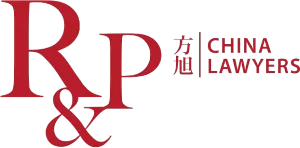Starting from 1 December 2017 new reduced import tariffs apply in China. It is the fourth time China has reduced its import tariffs since 2015. This is positive news for foreign companies that are already selling in the PRC and for companies that are pondering entering the Chinese market, as this newest measure will significantly reduce the cost of selling certain imported goods to Chinese consumers.
187 different product categories are affected by the changes, with most of the tariffs having been reduced by at least 50%. The most eye-catching tariff reductions:
- baby formula: from 20% to 0%
- diapers: from 7.5% to 0%
- retail packaged infant food: from 15% to 2%
Other notable products that are affected by the reductions are:
- 27 kinds of medicines (like penicillin and ampicillin)
- certain kinds of coats, suits and textile and leather materials
- 20 different personal hygiene and beauty products, such as eye shadow, lipstick, toothbrushes and shampoo
- 8 various seafoods (like salmon, crabs and shrimp)
- 30 categories household appliances (like washing machines, coffee machines, air conditioners toasters)
- 21 different foodstuffs including cheese, meat and pasta
- 4 categories of drinks
Consumer spending has quickly become the engine of Chinese economic development, and so this newest measure is a clear effort to encourage domestic spending and therefor economic growth. Secondarily, this reduction will also incentivise Chinese from buying in China rather than spending abroad – a trend that was started by high net-worth individuals but is becoming popular with the middle class as well. The regulation could also adversely affect the so called dàigòu (代购) business model – Chinese agents that purchase goods overseas, and send or peddle them back to China.
The reduction also signals that the PRC government acknowledges the strong preference that Chinese consumers have for foreign consumer products. Very often, these are still seen as superior to domestically produced items, especially in the health and beauty segments. This round of tariff reductions therefore presents new opportunities for foreign companies that want to sell in China.
Cross-border E-commerce
Interestingly, this measure may also put pressure on companies that only use the cross-border E-commerce model to sell into China. Under this model, goods are marketed on international online platforms such as Tmall Global and when purchased, items are shipped directly from bonded zones to Chinese individual buyers without having to pay duties. The latest developments will make it more attractive for international businesses to set up entities in China directly, import the goods against the now reduced tariffs, and then sell them on local online platforms (e.g. Tmall) to reach a much broader audience.
The content of this article is intended to provide a general guide to the subject matter. Specialist advice should be sought about your specific circumstances.

